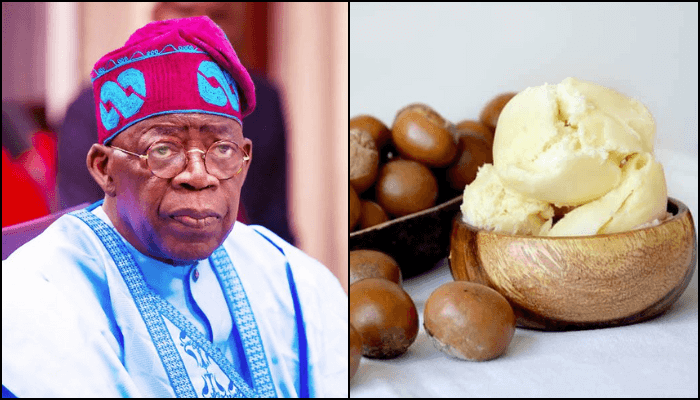
…says “Nigeria, world largest exporter gets less than 1% of $6.5b global revenue
President Bola Tinubu has approved a 6-month ban on the export of raw shea nut (Vitellaria paradoxa) to curb informal trade, boost local processing, protect and grow Nigeria’s shea industry, with a revenue target of $300m revenue, annually.
BusinessDay gathered that the ban, which is with immediate effect, is subject to review on expiration and specifically aimed at boosting Nigeria’s shea value chain to generate around $300 million annually in the short term.
Stanley Nkwocha, the senior special assistant to the president on media and communications, office of the Vice President, disclosed that Vice President Kashim Shettima disclosed this at the Presidential Villa, Abuja.
Nigeria remains the world’s largest producer of shea nuts, considered as a vital economic resource concentrated in the northern regions, particularly in Niger State.
Currently, Nigeria produces an estimated 350,000 metric tonnes of shea annually across 30 states, with the potential to reach nearly 900,000 metric tonnes.
The nuts which are harvested from shea trees indigenous to Nigeria’s savanna belt are a source of income for millions, especially women.
“The nuts are used to produce high-quality shea butter, sought after globally for its use in cosmetics and confectionery due to its emollient, anti-inflammatory, and UV-protective properties”
Shettima while announcing the president’s directive at a multi-stakeholder meeting at the Presidential Villa, called on the Federal Ministry of Finance and other relevant government agencies to fast-track enforcement.
Shettima stated that the decision was not “an anti-trade policy but a pro-value addition policy designed to secure raw materials for our processing factories and enabling industries run at full capacity thereby boosting rural income and jobs for our people.”
“Rather, it will transform Nigeria from an exporter of raw shea nut to a global supplier of refined shea butter, oil and other derivatives,” just as he said it is about industrialisation, rural transformation, gender empowerment and expanding Nigeria’s global trade footprint.”
“Nigeria produces an estimated 350,000 metric tonnes of shea annually across 30 states, with the potential to reach nearly 900,000 metric tonnes.
He lamented that Nigeria’s share of the 6.5-billion-dollar global market is less than one percent.
Speaking on opportunities for job creation and income generation, the Vice President said, “Nigeria produces nearly 40% of the global shea product, yet we account for only 1% of the market share of $6.5 billion.
“This is unacceptable. We are projected to earn about $300 million annually in the short term, and by 2027, there will be a 10-fold increase. This is our target.”
Shettima explained that the ban was a collective decision involving the sub-nationals and the Federal Government with clear directions for economic transformation in the overall interest of the nation.
“Government is not closing doors; we are opening opportunities. Mr President is currently in Brazil, and both countries have agreed to prioritize access for Nigerian shea butter and oil into the Brazilian market. This process will be completed within the next 3 months,” the VP added.
Source: Businessday



